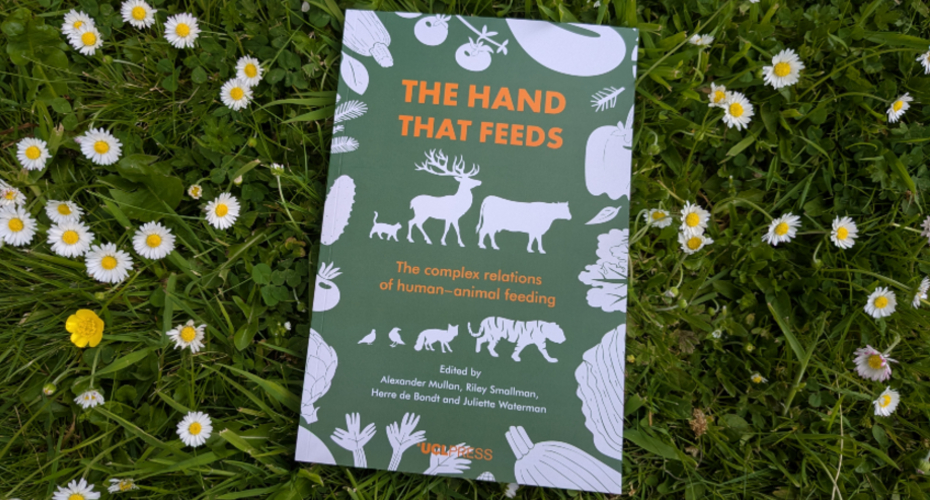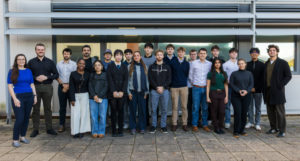Early career researchers lead publication of first book exploring human fascination with feeding animals

A unique study of the emotional drivers and impacts that people experience when they feed animals in has been drawn together in a new book.
From the feeding of falcons as part of their training in the medieval era to food as a source of conflict with crows, ravens and other corvids, the book, The Hand that Feeds explores a range of interactions between people and animals.
It’s been co-led by academics at the University of Exeter, as part of the Wellcome-funded research project ‘From “Feed the Birds” to “Do Not Feed the Animals”’.
Early career researchers in archaeology, sociology and social sciences contributed chapters to the book, alongside counterparts at the universities of Reading and Roehampton, and National Museums Scotland.
“Animal feeding is usually considered from either the utilitarian aspect of farming, where food is related to output or nutrition, or the emotional aspect of pets,” says the book’s co-editor Riley Smallman. “But there is this unexplored and fascinating field of human-animal interactions through food that exists outside of these two realms. What this book does is look at those relationships and the wider impacts on potentially unexpected areas, such as broader influences on cultures and environments.
“We have studied a broader range of species and contexts including wild and zoo animals, as well as human-animal relationships both in the modern day and throughout history.”
‘From “Feed the Birds” to “Do Not Feed the Animals”’ set out to undertake a deep-time and cross-cultural investigation to uncover the many reasons why people feed animals and explore the benefits and risks for all concerned. So, an interdisciplinary team was brought together to study animal feeding practices beyond previously-studied contexts and perspectives, including the fields of zoology, bioarchaeology and anthropology.
The book is one of the outputs of the five-five-year study and showcases the work of numerous postgraduate researchers at Exeter. Felix Sadebeck analyses Roman veterinary feeding of cattle and how such interactions transgress human–animal divides through food, while Hannah Britton and Arthur Redmonds consider medieval falconry relationships, epitomised through the unusual and exotic cures fed to sick birds.
A case study of how food is a source of conflict between people and corvids was contributed by Riley Smallman, and anthropologist Hannah Mortimer explores the movement of regenerative farming and what that means for the feeding of livestock. Finally, Dr Virginia Thomas, a social scientist, considers the effects of human-driven conservation feeding on species on the brink of extinction with a case study of red kites.
“The whole book has very much been a collaborative effort where all the chapters work together effectively as case studies for the main themes,” adds Riley.
The Hand that Feeds: the complex relations of human-animal feeding is published by UCL Press.



